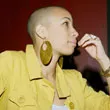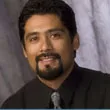Kathryn Morgan Festival: Featured Poet Sunni Patterson

The 2013 celebration of Black History Month at Swarthmore started off with a bang, as the Black Cultural Center (BCC) and the Swarthmore, Bryn Mawr, and Haverford communities hosted the Black Love Formal on Feb. 2. The formal kicked off a month full of events, including panel discussions, lectures, musical and dance performances, and more.
The BCC joined over 20 sponsors from the College, such as the Black Studies Program, Students of Caribbean Ancestry, Swarthmore African-American Student Society, the Lang Center for Civic and Social Responsibility, and Achieving Black & Latino Leaders of Excellence (A.B.L.L.E.) in hosting events, including a faculty panel, "Freedom Now: Attaining and Sustaining Equality in a 'Post-Racial' Society." Speakers at that event on Feb. 11 included Professor of History Allison Dorsey, Assistant Professor of Black Studies and Educational Studies Cheryl Jones-Walker, and Visiting Professor of Peace and Confict Studies George Lakey. Later that week, the BCC also hosted Soul Shack, an informal evening event for students to share songs, jokes, and poetry with each other.
A.B.L.L.E. presented a lecture titled "The Consequences of Mass Incarceration on Black/Latino Boys" by Victor Rios on Feb. 21. Rios, an associate professor of sociology at the University of California, Santa Barbara, detailed his research on inequality in America, particularly in relation to juvenile justice, race, and masculinity.
The annual Kathryn Morgan Poetry Festival featured poet, singer, and spoken word artist Sunni Patterson. Patterson, who hails from New Orleans, infuses the history and tradition of her hometown into her music and poetry. A past performer on HBO's Def Poetry Jam and BET's Lyric Café, Patterson brought her characteristic warmth and empowering personality to Swarthmore on Feb. 25.
The final event of Black History Month was the lecture, "The Hidden Treasure of Black American Sign Language: Its History and Structure." Highlighting the research of the Black American Sign Language (ASL) Project, professors and researchers Carolyn McCaskill and Ceil Lucas mapped the history of Black ASL in the United States. Black ASL derives its distinct linguistic characteristics from its development in the racially segregated South, where black and white deaf children had different access to education since the late 1800s.




